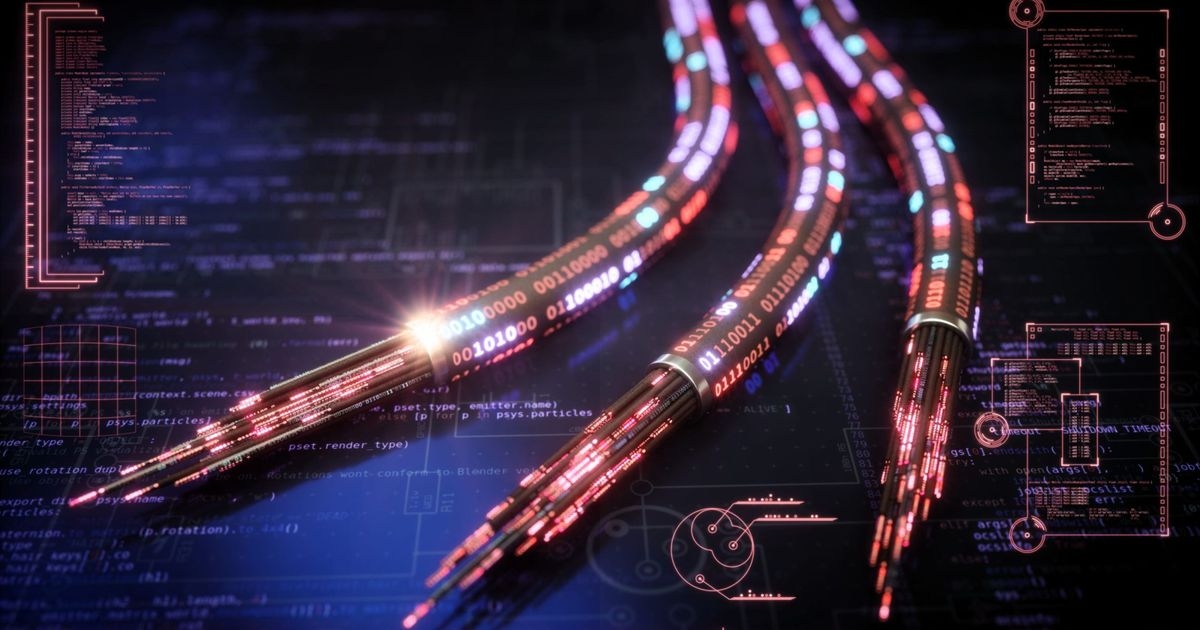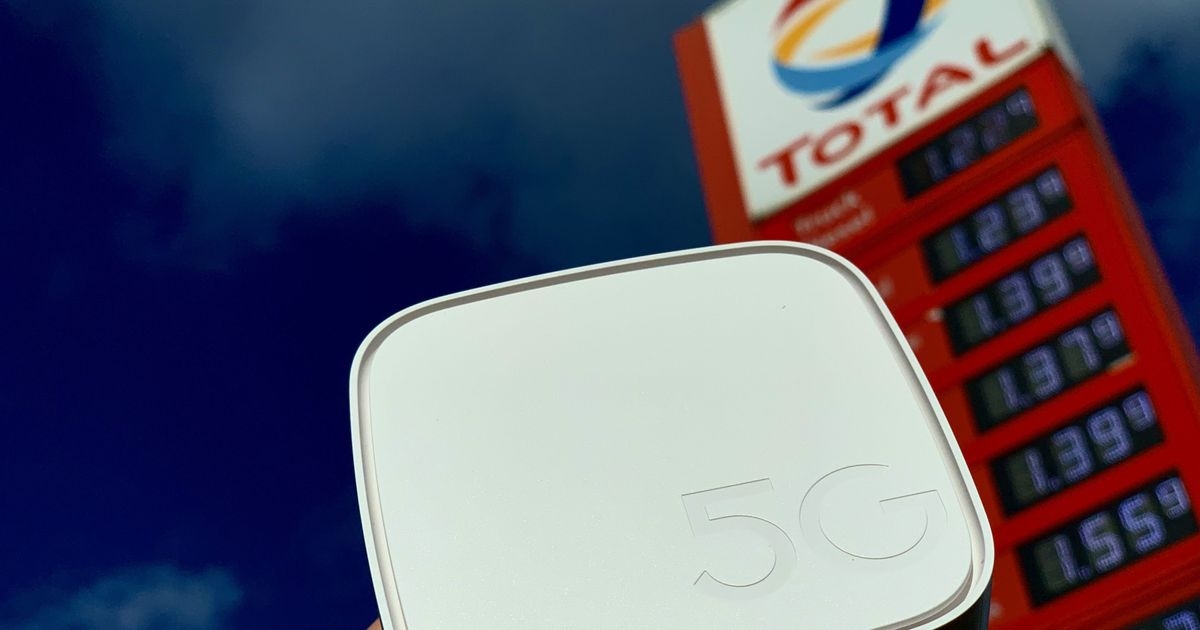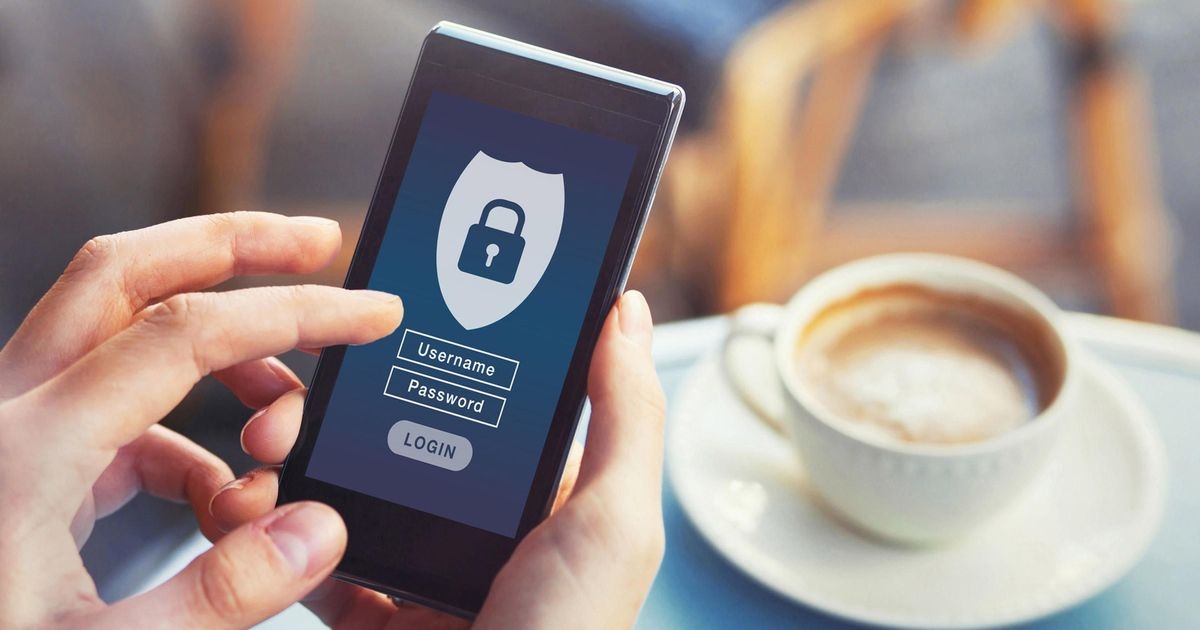Schluss mit Zeitverschwendung: So wird Ihr Unternehmen effizienter
3 zentrale Strategien gegen den Fachkräftemangel
Gefahrenquelle Cyberattacken: So schützen Sie sich und bleiben produktiv
Business Case #14: Innovativ und effizient dank Multi-Cloud-Architektur
V-Hub: Praxiswissen für Ihren digitalen Erfolg
Hier finden Sie spannende Learnings und Tipps zu Technologien, Tools und digitalen Trends. Damit entwickeln Sie Ihr Business digital weiter. Mit Podcasts, Videos, Artikeln, Webinaren und Whitepapers bekommen Sie wichtige Infos.
Sie haben Fragen? Dann helfen Ihnen unsere Expert:innen gern.
Reerdigung: Die nachhaltige Zukunft der Bestattung? – mit „Meine Erde“-Gründer Pablo Metz
Pablo Metz ist Gründer des Bestattungsunternehmens Meine Erde. Statt Feuer- oder Erdbestattung transfomiert das Unternehmen die Körper von Verstorbenen zu sogenanntem Human-Kompost.

Datenübertragung per Glasfaser: Vorteile und Funktionsweise
Moderne Glasfasernetze übertragen riesige Datenmengen über weite Entfernungen – zum Beispiel von Kontinent zu Kontinent durch die Weltmeere. Was die biegsame Superader aus Siliciumdioxid noch so alles kann und wie Sie und Ihr Unternehmen davon profitieren, lesen Sie hier. Werfen Sie gemeinsam mit uns einen Blick auf den Glasturbo des Informationszeitalters. Störungsresistent, witterungsbeständig, unbrennbar und so übertragungsstark wie hundert Kupferkabel – ziemlich beeindruckend für eine winzige Faser, die kaum dicker ist als ein menschliches Haar. Glasfasertechnik hat den modernen Datentransfer revolutioniert. In den weltweiten Übertragungsnetzen transportiert sie unvorstellbare Datenmengen. Und während die Entfernung zum nächsten Verteilerkasten oder das Magnetfeld benachbarter Leitungen für herkömmliche Datenleiter aus Kupfer zur Datenbremse wird, ist Glasfaser immun gegen derartige Störeinflüsse. Und das sind noch längst nicht alle Vorteile der robusten Lichtwellenleiter.

Azure OpenAI: Die Kraft der KI für Ihr Unternehmen nutzen
Künstliche Intelligenz ist schon heute viel mehr als nur ein Versprechen – das Marktvolumen generativer KI-Anwendungen hat sich seit 2021 von knapp 100 auf fast 300 Milliarden US-Dollar pro Jahr etwa verdreifacht. Sie ist also mehr als nur ein nützliches Werkzeug, um Ihnen die Arbeit zu erleichtern. Stattdessen kann sie Prozesse beschleunigen und helfen, neue Anwendungen für Ihr Unternehmen zu erschließen. Der Azure OpenAI Service von Microsoft ist solch ein Instrument. Längst entfaltet künstliche Intelligenz in Unternehmen ihr Potenzial. Sie kann den Kundenservice durch hochwertige Chatbots verbessern, die Buchhaltung mit Datenanalysen unterstützen oder die Forschung und Entwicklung mit Softwaretests beschleunigen. Um dieses Potenzial zu erschließen, benötigen Unternehmen allerdings das richtige KI-Tool. Microsoft hat mit dem Azure OpenAI Service eine leistungsstarke Option im Programm. Ob es zu Ihrem Unternehmen passt, erfahren Sie hier.

European Sovereign Cloud: Amazon plant langfristige Investitionen
AWS (Amazon Web Services) will mit einer unabhängigen Cloud die europäischen Anforderungen an digitale Souveränität erfüllen. Die „AWS European Sovereign Cloud“ soll von Amazons Public Cloud getrennt sein. Dadurch könne sie im EU-Raum auch streng regulierte Branchen und Behörden mit ihren IT-Systemen in die Cloud bringen. Alle Details zur neuen Euro-Cloud und ihren Vorteilen für den Wirtschaftsstandort Deutschland erfahren Sie hier. Mit der souveränen europäischen AWS-Cloud will der amerikanische Hyperscaler Amazon die Messlatte für fortschrittliche IT-Infrastrukturen noch mal ein Stück höher legen. Die neue EU-Cloud soll den strengen europäischen Vorschriften für Datenschutz und -verarbeitung entsprechen – ohne Kompromisse bei der Leistung und der Skalierbarkeit. Pilotregion für die AWS European Sovereign Cloud ist Brandenburg. Die Sovereign Cloud könnte bisherige Barrieren für die Digitalisierung abbauen – auch im öffentlichen Sektor und bei den Betreibern kritischer Infrastrukturen (KRITIS). Auch deshalb unterstützen große deutsche Industrieunternehmen den Schritt von Amazons Cloud-Sparte AWS.

Stromtankstellen an jeder Laterne – mit Vodafone M2M und ubitricity
Eine Stromtankstelle zu finden, ist nicht immer einfach. Viele Kommunen und Energieversorger zögern mit der Einrichtung, denn das Aufstellen und der Unterhalt können teuer sein. Dabei ist eine Stromversorgung theoretisch fast überall in den Städten verfügbar. Was fehlt, ist eine wirtschaftliche Lösung, um den Zugang zum Stromnetz zu regeln und die geladene Energie abzurechnen. Hier setzt ein Unternehmen ein, dass diese Herausforderung durch intelligente Stromkabel meistern möchte. Mehr als 1,5 Millionen Elektrofahrzeuge zählten die Zulassungsbehörden 2024 auf deutschen Straßen. Doch Lademöglichkeiten sind vielerorten Mangelware. Also wo tanken? Die Energieversorgung liegt unterm Pflaster meist schon bereit – man müsste sie nur noch anzapfen. So ähnlich dachten wohl auch Knut Hechtfischer und Frank Pawlitschek im Jahr 2008 und gründeten das Unternehmen ubitricity in Berlin. Der Name lässt die Idee dahinter erkennen: „Ubiquitous electricity”, also frei übersetzt so etwas wie „überall verfügbarer Strom”. Sie wollen also den Zugang zu und die Abrechnung von elektrischem Strom an quasi jedem Ort möglich machen. In der heimischen Garage, auf dem Parkplatz des Arbeitgebers – aber eben auch am Straßenrand über die herkömmliche Straßenlaterne. Eine Geschäftsidee, die positiven Einfluss auf die Elektromobilität haben könnte, denn bei rund 9 Millionen Straßenlaternen und vielen weiteren möglichen Entnahmepunkten für elektrischen Strom wäre dies eine überaus praktische Lademöglichkeit.

Die Tankstelle der Zukunft ist dank 5G vollvernetzt und digitalisiert
Die Tankstelle der Zukunft ist volldigital. Von der Zapfsäule über die Waschstraße bis hin zu den Info-Displays über den Kühlregalen sind alle Geräte per schnellem 5G-Mobilfunk untereinander und mit dem Internet verbunden. Was damit außer kostenlosem WLAN für die Kund:innen noch alles möglich wird, lesen Sie hier. Moderne Tankstellen haben viel mehr zu bieten als nur Benzin, Diesel, Strom oder Luft für die Reifen. Sie haben sich zu Vollsortimentern mit einem reichhaltigen Angebot an Convenience-Produkten entwickelt – inklusive Brötchenverkauf, Café und Kühltheke. Viele Kund:innen, insbesondere an Autobahnen und auf Autohöfen nutzen ihre Tankpausen daher, um sich mit Snacks, Kaffee oder Reisezubehör zu versorgen. Auch viele Handwerker:innen und Berufskraftfahrer:innen verbringen ihre Frühstückspause an der Tankstelle. Was liegt also näher, als den Kund:innen hier einen Service ähnlich wie in den Innenstädten zu bieten? Immerhin steigt mit der Verweildauer am Point of Sale (POS) in der Regel auch das Umsatzpotenzial. Und Lebensmittel und Zeitschriften haben eine deutlich bessere Marge als Betriebsstoffe. Der Tankstellenbetreiber TOTAL hat deshalb bereits 2020 die ersten zwei seiner bundesweit 1200 Stationen gemeinsam mit Vodafone zu 5G-Tankstellen weiterentwickelt.

Smartphone-Sicherheit: Wie Sie Ihre Geräte wirkungsvoll schützen
Ist Ihr Smartphone oder Tablet ausreichend gesichert? Der Digitalverband Bitkom rechnet mit jährlichen Schäden durch Cyberkriminalität, auch und insbesondere bei Mobilgeräten, in Milliardenhöhe. Wie können Unternehmen ihre Mitarbeiter:innen und sich selbst vor solchen Risiken schützen, ohne beim Nutzwert der Geräte Abstriche zu machen? Laut der Bitkom-Erhebung „Wirtschaftsschutz 2023“ sind im Jahr 2023 rund 72 Prozent der vom Branchenverband befragten Unternehmen Opfer von Wirtschaftsspionage, Sabotage oder Datendiebstahl geworden. Rund 61 Prozent gaben an, dass ihre digitale Kommunikation nachweislich ausspioniert worden sei oder es zumindest Hinweise darauf gäbe. Der Gesamtschaden durch Cyberkriminalität beläuft sich inzwischen auf über 200 Milliarden Euro pro Jahr, schätzt Bitkom. Dabei erwarten die befragten Unternehmen für die Zukunft sogar noch eine deutliche Zunahme der Cyberattacken. Zugleich sah sich gegenüber früheren Studien erstmals eine Mehrheit der befragten Firmen durch Cyberattacken in ihrer Existenz bedroht. Und doch gibt es in vielen Firmen Mängel beim technischen Geräteschutz: Es fehlen beispielsweise Regelungen für die Mitnahme von ITK-Equipment auf Geschäftsreisen. Auch eine „Clean-Desk-Policy“ die vorschreibt, dass Smartphones und andere sensible Geräte nicht offen herumliegen sollen, fehlt in vielen Firmen. Das ist besonders gefährlich, weil viele Cyberattacken nicht von außen, sondern von innen aus den betroffenen Unternehmen heraus erfolgen.

Diebstahlschutz für Güter & Maschinen: Mehr Sicherheit für Ihre Assets
Wirksamer Diebstahlschutz ist gerade auf großen Firmengeländen oder Baustellen eine Herausforderung. Viele Unternehmen setzen hierfür auf Kameraüberwachung und externe Wachdienste. Mit dem Vodafone Assets & Products Tracker als Teil der IoT-Tracker-Reihe sorgen Sie für zusätzlichen Schutz – und können gestohlene Gegenstände häufig sogar wiederfinden. Seit einigen Jahren steigt die Anzahl der in Deutschland gemeldeten Diebstähle wieder an. Laut BKA gab es allein 2023 eine Zunahme um über 10 Prozent auf knapp 2 Millionen gemeldete Fälle. Schutz insbesondere vor gewerbsmäßig betriebenem Diebstahl ist daher ein wichtiges Themen für Industrie, Baugewerbe und Handel. Jedes Jahr entstehen durch Diebstähle immense Kosten. Die Diebesaktionen scheinen dabei immer gewagter zu werden: In Stuttgart etwa wurde ein kompletter, beinahe 50 Tonnen schwerer Hebekran gestohlen. Wert des Gerätes: mehr als eine halbe Million Euro. Doch fast noch teurer sind oft die Produktionsausfälle, wenn wichtige Maschinen oder ganze Anlagen plötzlich fehlen. Grund genug also, bestehende Sicherheitskonzepte zu hinterfragen und über weitere Maßnahmen nachzudenken. Moderne Mobilfunktechnik und das Internet der Dinge können hier helfen.

5G im IoT: Möglichkeiten, Chancen und Besonderheiten in der Industrie
Produktionsstraßen oder ganze Fabriken, die sich mobilfunkgestützt selbst überwachen und steuern, intelligente Lagersysteme, die mithilfe autonomer Transportfahrzeuge alle benötigten Materialien und Werkstücke jederzeit punktgenau und zuverlässig zum Einsatzort bringen: Das Internet of Things (IoT) und die Mobilfunkstandards 5G und 5G+ wachsen gerade zum Rückgrat der Smart Factory zusammen und machen vieles möglich, was bisher nur schwer automatisierbar war. Was damit in der Produktion alles machbar ist und warum die meisten Industriebetriebe in nur wenigen Jahren schon ganz anders aussehen könnten als heute, lesen Sie hier. Es ist die Hochzeit, auf die alle Expert:innen gewartet haben: Mit den Mobilfunktechnologien 5G und 5G+ auf der Netzeseite und immer leistungsfähigeren IoT-Systemen innerhalb dieser Netze können selbst größte Werke und Industrieanlagen endlich in Echtzeit synchronisiert werden. Weil von der Komissionierung über die Hydraulikpresse bis hin zum Lackierroboter und dem Versandlager fortan alle Stationen dauerhaft mit der Cloud verbunden sind und abgestimmt arbeiten, werden ganz neue Prozesse und Abläufe ohne Wartezeiten und Leerläufe möglich. Und damit steht die Industrie erst am Anfang der 5G-Revolution.





